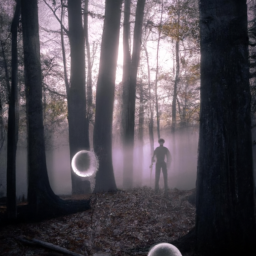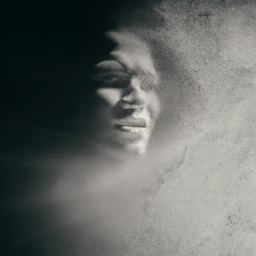I was thrilled to find out that ‘What Dreams May Come’ is available for streaming on Netflix.
This 1998 film, directed by Vincent Ward and starring Robin Williams and Cuba Gooding Jr., is a visually stunning exploration of the afterlife.
It tells the story of Chris Nielsen, who dies in a car accident and finds himself in a beautiful but unfamiliar world where he must navigate his way through heaven and hell to reunite with his wife.
The movie’s themes of love, loss, and redemption are explored through breathtaking imagery that earned it an Academy Award for Best Visual Effects.
As someone who values personal growth and reflection, I was eager to delve into this thought-provoking film and explore its impact on viewers.
Join me as we take a closer look at ‘What Dreams May Come’ on Netflix.
Key Takeaways
- ‘What Dreams May Come’ is a 1998 film on Netflix exploring the afterlife and starring Robin Williams and Cuba Gooding Jr.
- The movie won an Academy Award for Best Visual Effects and is known for its themes of love, loss, and redemption.
- The film’s portrayal of grief and healing is powerful, and the exploration of the afterlife is unique and thought-provoking.
- Availability on Netflix provides an opportunity for more people to discover the story and could lead to increased interest in the genre.
Synopsis of the Movie Plot
So, you’re about to embark on a journey into the afterlife with the movie What Dreams May Come. The film explores the concept of life after death and takes viewers on a beautiful yet haunting journey through heaven and hell.
Robin Williams plays Chris Nielsen, a man who dies in a car accident and must navigate through the afterlife to save his wife’s soul. The psychological aspects of this movie are intriguing. It delves into themes such as grief, loss, love, and redemption.
As Chris travels through the afterlife, he encounters different characters who represent different parts of his psyche. From facing his own demons to helping lost souls find their way, this movie is an exploration of both the physical and emotional aspects of life beyond death.
What Dreams May Come boasts an impressive cast and crew, including director Vincent Ward and actors Annabella Sciorra and Cuba Gooding Jr. They bring depth and nuance to their roles in what can only be described as a visually stunning masterpiece.
Now that you have an idea of what this movie is about, let’s take a look at the talented individuals who brought it all together.
Cast and Crew
The talented cast and crew of ‘What Dreams May Come’ brought their A-game to this emotionally charged film. Robin Williams, who played the lead role of Chris Nielsen, delivered a powerful performance that tugged at the heartstrings of viewers.
Additionally, supporting actors such as Annabella Sciorra, Cuba Gooding Jr., and Max von Sydow added depth and complexity to their characters, making them integral parts of the movie’s success. With such a remarkable cast and crew behind it, ‘What Dreams May Come’ would undoubtedly attract an equally impressive dream cast for a possible remake.
Some names that come to mind include Tom Hanks or Hugh Jackman in the role of Chris Nielsen; Emma Stone or Jennifer Lawrence as his wife Annie; and Willem Dafoe or Michael Fassbender as Albert Lewis. With the right director and scriptwriter, this potential remake could be just as stunning as its predecessor.
The dedication and hard work put in by every member of the cast and crew is evident in every scene of ‘What Dreams May Come’. Their passion for storytelling allowed them to create a film that not only entertains but also inspires audiences to reflect on life’s biggest questions.
The inspiration behind this movie is rooted in love, loss, hope, and spirituality – themes that resonate with all of us on some level.
The Inspiration Behind the Movie
As I delved deeper into the making of ‘What Dreams May Come’ on Netflix, I discovered two key points that inspired the movie:
- Richard Matheson’s novel explored the afterlife in a unique way.
- Vincent Ward’s artistic approach to filmmaking added a visual depth to the story.
These two elements came together to create a masterpiece that not only entertained but also deeply moved its viewers.
Richard Matheson’s Novel
You might be interested to know that Richard Matheson’s novel played a significant role in inspiring the movie ‘What Dreams May Come’ on Netflix. Matheson, who’s known for his influential works such as ‘I Am Legend,’ wrote the book in 1978.
The novel explores themes of love, death, and the afterlife, which served as a foundation for Vincent Ward’s vision of the movie. The novel’s reception was mixed when it was first published; some critics praised its imaginative storytelling while others criticized its slow pacing and lack of character development.
Despite this mixed response, Matheson’s influences can still be seen in popular culture today, including films like ‘What Dreams May Come.’ With an engaging storyline and unique take on afterlife beliefs, the novel laid the groundwork for an unforgettable cinematic experience that is now available on Netflix.
As we move into discussing Vincent Ward’s vision for the film adaptation of ‘What Dreams May Come,’ it’s important to note how crucial Richard Matheson’s work was in shaping its narrative.
Vincent Ward’s Vision
Vincent Ward had a vision for the film adaptation of ‘What Dreams May Come’. He aimed to elicit an emotional response from the audience by exploring the truth behind afterlife beliefs. Ward wanted to create a movie that would leave viewers questioning their own beliefs about life, death, and what may come after.
To achieve this goal, he utilized various symbolic elements throughout the film. These included the use of bright colors in heaven contrasted with dark, muted tones in hell to evoke a sense of hope versus despair. He also incorporated water as a symbol of cleansing and renewal, and the presence of butterflies as symbols of transformation and rebirth. Additionally, Ward portrayed angels as beings who guide us through our journey.
These symbolism explored by Vincent Ward allowed him to create a visually stunning movie that not only entertained but also provoked thought and reflection. As we move into discussing the visual effects and cinematography used in ‘What Dreams May Come’, it is important to note how these elements enhanced Ward’s vision for the film.
Visual Effects and Cinematography
The stunning visual effects and cinematography in What Dreams May Come on Netflix transport viewers to a surreal world beyond imagination. The use of special effects techniques in this film is impressive, especially in the depiction of heaven and hell. The vibrant colors used to create these worlds are captivating and add an otherworldly dimension to the film.
In addition to the special effects, the color grading methods used in What Dreams May Come also contribute significantly to its overall aesthetic. The use of contrasting colors creates a stark contrast between different scenes, emphasizing the emotional tone of each moment. This technique is particularly effective during scenes that take place in both heaven and hell.
Overall, the visual effects and cinematography in What Dreams May Come on Netflix are some of the most remarkable aspects of the film. They work together seamlessly to create an immersive experience for viewers that captures their imaginations from start to finish.
As we explore further into this film’s themes, it becomes clear how these elements contribute not only to its beauty but also its emotional resonance.
Themes Explored in the Movie
When watching ‘What Dreams May Come’ on Netflix, I couldn’t help but be moved by the themes explored in the movie.
Love and loss are major motifs throughout the film, as Robin Williams’ character navigates the afterlife to find his wife who’s committed suicide and is trapped in a state of despair. The power of the human spirit shines through as he perseveres through challenges and obstacles to save her.
Ultimately, redemption and forgiveness play a crucial role in bringing resolution to the story, reminding us of the importance of both for our own well-being and that of those around us.
Love and Loss
Losing someone you love is one of the hardest experiences anyone can go through, and it’s a theme explored in What Dreams May Come on Netflix.
The movie portrays how different people cope with the death of their loved ones. Some resort to self-destructive behavior, while others try to suppress their emotions. But ultimately, healing is a process that requires acceptance and finding healthy coping mechanisms.
In the movie, we see Robin Williams’ character struggling after his wife’s tragic death. He goes through intense grief and even attempts suicide to be with her in the afterlife. It’s only when he realizes that he needs to accept her death and find other ways to honor her memory that he begins to heal.
This portrayal of grief and healing is a powerful reminder that there’s no one ‘right’ way to cope with loss, but finding healthy coping mechanisms can help us move forward and honor our loved ones’ memories.
The power of the human spirit is another theme explored in What Dreams May Come on Netflix. Despite experiencing immense pain, the characters in the movie show resilience and strength as they navigate through difficult situations. They don’t give up hope or lose sight of what’s important – love, family, and connection – even when faced with seemingly insurmountable obstacles.
This message serves as an inspiration for viewers who may be going through tough times themselves: we have within us an indomitable spirit capable of overcoming any challenge life throws at us if we choose to tap into it.
The Power of the Human Spirit
You can tap into your indomitable spirit and overcome any challenge life throws at you. It’s all a matter of resilience and determination, qualities that are present in every human being.
I’ve learned this lesson firsthand, having faced countless obstacles throughout my life. When I was younger, I struggled with severe anxiety and depression. It was a constant battle just to get through each day, but I refused to let these conditions define me. Instead, I turned towards therapy and self-help books to learn how to cope with my emotions. Through hard work and dedication, I was able to build up my mental fortitude and finally conquer my inner demons.
This experience taught me that no matter how difficult things may seem, there is always a way forward if you have the strength of will to push through it. And that’s the beauty of the human spirit – it has an almost limitless capacity for growth and change. No matter what challenges we face in life, we have within us the power to overcome them and emerge stronger on the other side.
With resilience and determination as our guides, we can conquer even the most daunting obstacles thrown our way. But this is just one step towards true redemption and forgiveness – a topic which we’ll explore next.
Redemption and Forgiveness
Don’t underestimate the power of redemption and forgiveness, as it can bring healing and renewal to even the most broken relationships. When we forgive someone who has wronged us, we release ourselves from the burden of anger, resentment, and bitterness. It’s not easy to forgive, but when we do, we create space for love and compassion.
Redemption is also a powerful force that can transform our lives. It’s never too late to turn things around and make amends for past mistakes. The journey towards redemption may be difficult, but it’s worth taking because in doing so, we become better versions of ourselves. Redemption requires humility and a willingness to take responsibility for our actions.
Through forgiveness and redemption, we can find peace within ourselves and with others.
The themes of redemption and forgiveness are prominent in What Dreams May Come on Netflix. The movie reminds us that life is fragile and fleeting, but there is always hope for healing even in the face of tragedy. As viewers watch this emotional story unfold onscreen, they’re reminded of the importance of forgiveness in their own lives.
Emotional Impact on Viewers
Feeling overwhelmed by the raw emotions portrayed in What Dreams May Come on Netflix? Let yourself be completely immersed in the story and allow your heart to feel every moment.
The film does an excellent job of exploring grief and understanding the afterlife, but what truly sets it apart is its ability to leave a lasting emotional impact on viewers.
As I watched the heartbreaking journey of Chris Nielsen’s afterlife, I couldn’t help but feel a deep sense of empathy for his struggles. Robin Williams’ masterful performance as Chris brought me to tears countless times throughout the film.
The scenes depicting Chris’s descent into despair and eventual redemption were particularly moving, leaving me with a renewed appreciation for forgiveness and hope.
Overall, What Dreams May Come is a powerful masterpiece that will stay with you long after viewing. Its portrayal of raw human emotion resonates deeply with audiences, making it a must-watch for anyone who seeks to understand our collective experiences as humans.
As we move forward into the section about critical acclaim, it’s clear that this film deserves all of the praise it has received and more.
Critical Acclaim
I’d like to discuss the critical acclaim that What Dreams May Come has received.
Firstly, the film was nominated for Best Visual Effects at the Academy Awards and won for Best Art Direction.
Secondly, critics have praised the performances of Robin Williams and Cuba Gooding Jr., as well as the stunning visuals.
Finally, while some audiences found the film too sad or depressing, it’s garnered a cult following for its unique take on life after death.
Awards and Nominations
You’ll be pleased to know that ‘What Dreams May Come’ received nominations for Best Visual Effects and Best Art Direction at the Academy Awards. While it’s always exciting to see a film you love get recognized by such a prestigious organization, it’s worth noting that these nominations were not without controversy. Many fans of the film felt that it deserved more recognition, particularly in categories like Best Picture or Best Actor for Robin Williams’ performance. This sentiment is not uncommon among movie fans, as there are often "Oscar snubs"where deserving films or performances are overlooked by the Academy.
Despite this disappointment, it’s important to acknowledge the notable wins that ‘What Dreams May Come’ did achieve during awards season. In addition to its Oscar nominations, the film won awards for its visual effects and art direction at both the BAFTAs and the Saturn Awards. These accolades speak to the skill and creativity of the visual team behind the film, who brought author Richard Matheson’s vivid descriptions of heaven and hell to life on screen with stunning detail. Overall, while some may feel that ‘What Dreams May Come’ was overlooked by award voters, its impact on audiences and critics alike cannot be denied.
Moving on from awards recognition, let’s dive into what critics and audiences had to say about this visually stunning film.
Reviews by Critics and Audiences
If you’re curious about how ‘What Dreams May Come’ was received by critics and audiences, you’ll be happy to know that the film garnered mixed reviews upon its release.
Comparing interpretations of the movie, some praised it for its stunning visual effects and thought-provoking themes on love, death, and the afterlife. However, others found the plot too complex or confusing to follow.
Controversial opinions also surfaced regarding the portrayal of mental illness in one of the characters. While some appreciated the movie’s attempt to tackle such a sensitive topic, others felt that it reinforced negative stereotypes about people with psychiatric disorders.
Overall, ‘What Dreams May Come’ may not have been universally acclaimed but still managed to leave a lasting impression on many viewers. And if you enjoyed this film’s unique take on life after death, there are several similar movies worth checking out.
Similar Movies to Watch
As you browse through Netflix, you may come across other similar movies to watch. For example, The Lovely Bones or Eternal Sunshine of the Spotless Mind share some similarities with What Dreams May Come in terms of their exploration of the afterlife and the human experience.
The Lovely Bones is a haunting tale. It follows a young girl who was murdered and her journey through the afterlife as she watches over her family. On the other hand, Eternal Sunshine of the Spotless Mind is a mind-bending story about love, memory, and how we cope with loss.
Another great movie to watch if you enjoyed What Dreams May Come is A Ghost Story. This indie gem tells the story of a recently deceased man who returns to his home as a ghost and watches over his grieving wife. It’s an introspective film that explores themes of life, death, and grief in a unique way. Similarly, If I Stay is another hidden gem that shares some similarities with What Dreams May Come. It’s a heart-wrenching story about a teenage girl who has to decide whether to stay alive or pass on after surviving a catastrophic car accident.
If you’re looking for more movies like What Dreams May Come on Netflix, these are some great options to consider. Each one offers its own unique take on life after death and explores themes of love, loss, and grief in different ways. So why not grab some popcorn and settle down for an emotional cinematic ride? Don’t worry – all these movies are currently available on Netflix!
Availability on Netflix
As I was exploring great movies to watch similar to ‘What Dreams May Come’, it got me wondering about its availability on Netflix. After a quick search, I discovered that the movie is currently available for streaming on the platform, which made me wonder about its pros and cons.
Firstly, having ‘What Dreams May Come’ available on Netflix makes it easily accessible for people who are looking for a heart-wrenching yet uplifting story. It also helps to introduce new audiences to the work of Robin Williams and his incredible talent as an actor. However, there may be some individuals who’ve already seen the movie and might not want to re-watch it again.
Secondly, with more people watching this movie on Netflix, it could lead to increased interest in similar movies within the same genre. This could lead to future prospects of other lesser-known movies being added to Netflix’s library. On the flip side, if there isn’t enough interest generated from viewership, it could result in fewer such movies being added in the future.
While having ‘What Dreams May Come’ available on Netflix has its pros and cons, overall, it provides an opportunity for more people to discover this beautiful story of love and loss. It also opens up possibilities for other similar movies in this genre to be added to the platform in the future.
Frequently Asked Questions
What is the meaning behind the title "What Dreams May Come"?
Exploring symbolism and literary references, the title ‘What Dreams May Come’ suggests an analysis of dreams and their connection to the afterlife. By delving into psychology, the film offers insight into the human desire for serving others.
How did the filmmakers approach the depiction of the afterlife in the movie?
From a filmmaker’s perspective, the afterlife in "What Dreams May Come"was depicted through cultural influences and creative imagination. The use of vibrant colors and surreal landscapes aimed to evoke emotions and provide a unique interpretation of the unknown.
Were there any challenges faced during the production of the film?
During production, we faced numerous obstacles that required creative solutions. One example was the difficulty of creating realistic afterlife landscapes. We overcame this through innovative use of CGI and practical effects, resulting in stunning visuals akin to a painter’s masterpiece.
How did the cast prepare for their roles in the movie?
In character development, I studied the script and researched my character’s background. For acting techniques, I used method acting to connect with my emotions and portray an authentic performance.
Is there any significance to the use of color in the film’s visuals?
Symbolic representation of color in film can have a psychological impact on viewers. Colors like red can represent passion or danger, while blue can symbolize tranquility or sadness. Understanding the meaning behind colors adds depth to the visual experience.
Conclusion
Well, what can I say? After watching ‘What Dreams May Come’ on Netflix, I’m left feeling both emotionally drained and uplifted.
The movie explores themes of love, loss, redemption, and the afterlife in a visually stunning and thought-provoking way. While some may find the plot to be overly sentimental or even cheesy at times, it’s undeniably a beautiful film that has touched many viewers.
Ironically enough, despite its critical acclaim and devoted fan base, ‘What Dreams May Come’ wasn’t a commercial success upon release.
It seems fitting that a movie about finding beauty and meaning in unexpected places would resonate so deeply with those who discovered it later on. And now, thanks to Netflix, even more people can experience this cinematic gem for themselves.










